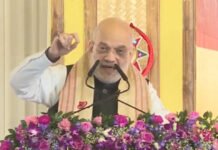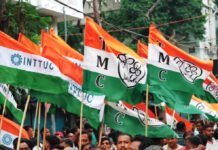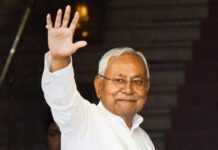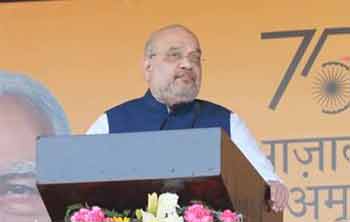Patna: With the Bihar Assembly Elections 2025 approaching, seat-sharing talks within the National Democratic Alliance (NDA) are gaining heat. While the quota of seats among NDA partners has already been finalized, the exact distribution is still pending. At the center of the negotiations is the Bharatiya Janata Party (BJP), which holds the authority to allocate seats to its allies after having secured their trust during the 2024 Lok Sabha polls.
NDA’s Seat Formula — Quota Decided, Seats Awaiting Final Call
The formula has been set on a broad understanding: out of 243 assembly seats in Bihar, the Janata Dal United (JDU) will contest on 100 seats, while the remaining 143 seats fall under BJP’s quota. From this share, the BJP will not only contest for itself (keeping more than 100 seats) but also allocate portions to allies like Lok Janshakti Party (Ram Vilas) led by Chirag Paswan, Hindustani Awam Morcha (Secular) led by Jitan Ram Manjhi, and Rashtriya Lok Morcha led by Upendra Kushwaha.
While JDU is pressing to push its share above 100, the BJP is firm on keeping the number fixed. The negotiations are sensitive, as BJP is aiming to project NDA unity before making any announcements.
BJP in Control, Allies Await Their Turn
During the Lok Sabha elections 2024, when Chirag Paswan rejoined NDA after a bitter fallout, the BJP gave him assurances of greater importance in the assembly elections. Similar commitments were made to Jitan Ram Manjhi and Upendra Kushwaha. The BJP leadership is now expected to fulfill those assurances while ensuring that its own seat tally does not weaken.
Sources indicate that before releasing the final seat chart, BJP will first conduct “persuasion rounds” with allies to iron out differences and prevent friction within the alliance.
Nitish Kumar’s Balancing Act
Chief Minister Nitish Kumar, who commands the JDU, is in a tricky spot. Though his party has been promised 100 seats, he is attempting to secure more. Nitish recently visited Delhi to hold discussions with the BJP top brass. His trusted lieutenant, Sanjay Jha, is playing a key role in these negotiations.
Unlike previous elections, this time JDU is refraining from announcing seats prematurely. The strategy is clear: let BJP settle internal disputes among its quota allies first and then move towards a united front.
Manjhi’s Shift From JDU to BJP Quota
The case of Jitan Ram Manjhi highlights how seat-sharing equations have evolved. In the 2020 Bihar elections, Manjhi’s HAM (Secular) was considered part of JDU’s quota. But when Nitish Kumar briefly joined the Mahagathbandhan after 2020, Manjhi did not enjoy his trust.
Things changed dramatically in 2023, when Manjhi’s son Santosh Suman resigned from the Mahagathbandhan government just before the opposition’s Patna meeting. By early 2024, with Nitish back in NDA, Manjhi firmly aligned under BJP’s umbrella. This shift ensures that HAM’s future in the NDA will now be determined by the BJP, not JDU.
Why This Seat-Sharing Matters
The outcome of these talks will determine the power balance in Bihar’s NDA:
BJP wants to cement its dominant role and prevent JDU from reclaiming leverage.
JDU under Nitish Kumar, though weakened, is still pushing for more seats to protect its political relevance.
Smaller allies like Chirag Paswan, Manjhi, and Kushwaha are bargaining hard for respectable figures, citing the promises made in 2024.
What Next?
According to insiders, BJP is likely to make the seat distribution announcement soon after rounds of negotiations. The party is confident of bringing all NDA partners on board before going public, ensuring there are no cracks visible in the alliance ahead of the polls.
Meanwhile, the Mahagathbandhan (RJD-Congress-Left) camp is yet to finalize its seat-sharing, giving NDA a head start in setting the election narrative.
👉 In the coming weeks, Bihar’s political stage will see intense bargaining, as every seat counts in a state where shifting alliances often decide who captures power in Patna.
















